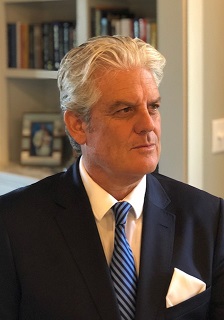From the CEO – September 2021
 Dear Clients,
Dear Clients,
Towards the end of last year, I was asked about some of the political risks that we should be aware of as 2021 unfolds. Forecasts, as it were. The query came alongside the annual ‘top ten’ lists that some risk firms offer for the coming 12 months.
The pandemic was in full swing, vaccines were a few months away from being administered, and much of the talk at the time centered on the usual items that had captured media attention: current or brewing events that are making the news, as opposed to larger, structural changes in the making. I’m thinking of topics that tend to have little immediate impact on asset performance, spending patterns, commercial planning, et al., such as continuing ‘tensions,’ between China and the US, warnings of climate change (although that really didn’t come into focus until the fires of the summer and the remnants of the hurricane that hit the northeastern US) and the implications of returning to ‘normal’ after what we assumed would be a widely embraced vaccination drive in the US.
In this context I mentioned that very few were talking about the political risk consequences of inflationary pressures since the monetary stimulus that was being injected into the economies of the world was, inter alia, setting off a trajectory of higher commodity prices. Moreover, the various lockdowns were forcing up rents and housing prices in areas outside urban centers, as workers no longer had to be physically present in an established office, aided by considerable improvements in communication technology.
In addition, some of our socioeconomic and social turmoil risk indicators for some emerging markets (viz., the Middle East) were deteriorating, and the IMF Working Papers series released an interesting study that used our ICRG risk indicators to show that unrest during pandemics tended to surge about 14 months after the wider onset of the disease, peaking after some 24 months. An interesting cocktail of interrelated political risks was therefore brewing, none of which were being discussed in a larger context.
I mentioned that there were several dimensions of the political risk/inflation picture that could play out, but I said it would be wise to consider some of the empirical work on the subject. It was better than rehashed opinions; it could invite cross-country comparisons. A few are instructive.
One of the more notable efforts at drawing the connection between political risk/stability and inflation (volatility) came by way of a study by Aiser and Vega in 2006. Using a data set covering some 100 countries from 1975 to 1999, they found that political and institutional factors were the main determinants of inflation volatility. Viz., politically unstable countries often lead to discontinuous monetary and fiscal policies and higher inflation volatility. More specifically, higher (and measured) levels of political instability, along with less economic freedom, and ideological polarization/fragmentation led to higher inflation volatility.
Drilling down a little further, Mendes (2021) considered the relationship between country risk and inflation. Using panel data analysis based on a sample of 90 countries for the period from 1990 to 2016, Mendes found that items he termed ‘cultural conflict,’ ‘governance failure’, the ‘attitude of partner countries towards a given country’ and overall ‘country risk’ (which was an amalgamation of a number of our ICRG risk indicators) had a direct effect on the inflation rate of countries and helped to understand why inflation differed among them.
And finally – and I thought this study was particularly interesting since few discuss the role the shadow economy plays in the connection between political risk and inflation – using a large data set of 122 countries over the 1999 to 2007 period and our ICRG ‘Internal Conflict’ risk series, Mazhar and Jafri (2017) found that the well-established negative correlation between political stability and inflation holds only if the size of the shadow economy remained modest: it ceases to exist as the informal sector expands. Accordingly, Mendes argued that political stability was an important determinant of inflation because less stable governments were more inclined to use the inflation tax given their tendency to resort to inefficient economic policies and due to their unwillingness to implement reforms that would benefit future governments. The presence of a large shadow economy may enhance both likelihoods.
These sorts of findings are informative because they offer empirical evidence to a set of measurable relationships between political risk and inflation and some of the consequences when political stability begins to wane. As such, corporate planning and asset valuation/allocation can therefore be done in a more disciplined fashion, free from the ‘talking heads’ and news media stories that often rely on single events and use the emotions that are produced to create and monetize readership.
Turning to September’s ratings a few standouts are worth mentioning. In the Americas, the opposition PLP in the Bahamas captured a convincing win in the recent snap poll, but all is not bright on the Caribbean island as the country’s national debt is about 6 times larger than the annual revenue base. Tourism receipts are not expected to recover until next year. In El Salvador, thousands protested the introduction of bitcoin as the national currency while the president looks to fire judges over the age of 60, presumably to replace them with ‘loyalists.’
In Western Europe, Germany’s SDP won the largest share of votes in the recent federal tally. Negotiations are underway to form a coalition government, with Merkel remaining in place until an agreement is reached. Consumer confidence levels are edging up, too, as infections ease. The same applies to Portugal as cases there have trended down due to an effective vaccination campaign. PRS is looking at Portugal growing at just under 4% this year, with inflation cresting the 2% mark.
Over in Eastern Europe, consumer confidence is waning in Moldova as infections mount and the post-election euphoria enjoyed by the new government begins to diminish. Russia’s election was seen largely as a massive fraud, with United Russia garnering about 2/3rds of the Duma amidst relatively low voter turnout and smaller protests.
Guinea’s recent coup has raised the ire of regional bodies, with ECOWAS giving the military junta a 6-month deadline for elections to be held. For its part the military just released what it termed a ‘transitional charter’ to reinstate democracy and have barred junta members from running in the upcoming tally.
In Asia, political stability looks reasonably assured in Japan as former PM Suga was replaced by a new LDP leader, former foreign minister Fumio Kishida, with a general election set for November. Kishida is known for his ability to forge consensus, and we are looking for greater spending as the election nears, with a bearish signal on the JPY/USD trade.
Finally, in the Middle East, Lebanon’s new government won the confidence of parliament, and hopes for a series of reforms – including a resumption of talks with the IMF – appear promising so far. And in Morocco, wealthy businessman Aziz Akhannouch will lead the new government after his liberal RNI party defeated moderate Islamists in recent parliamentary elections. Watch for the King to play a larger role in Morocco’s politics going forward.
We are pleased to announce that Uzbekistan has been added formally to the ICRG as the 141st country. After an exhaustive examination of the myriad variables affecting the country’s profile, the results are instructive.
In October, we’ll be releasing a brand-new addition to our popular Researchers’ Dataset series to complement the other data bundles affecting ESG, corruption, and internal/external conflict. The new series of annual data will provide a more granular look at the political risk components of the ICRG, supported by 20 years of monthly data. Scores of academic studies have been conducted using this series, providing unique insights into asset movements, government responses to the pandemic, and many more.
Our new book Quid Periculum? Measuring & Managing Political Risk in the Age of Uncertainty, co-edited and co-authored with Peter Marber (Harvard/Aperture Investors) is now available! The book includes such diverse topics as risk forecasting techniques, reliability measures, the impact of political risk on asset prices and sovereign debt workouts. Also featured is a special roundtable discussion by some of the world’s leading voices in the field on the future of political risk, who combine to address some of the challenges presented by globalization and COVID-19.
September was another productive month for new and returning clients, ranging from some of the world’s top universities to the largest institutional investors throughout the US, Europe, the UK, and the Middle East and Asia. Our data are regularly featured in the research of the IMF, Bank for International Settlements, and various central banks, such as the Bank of Italy.
The new look PRS is coming soon, too. Paying homage to our roots in the Hindu Arabic number system of the Renaissance period to more recently in the behavioral revolution of the late 1960s, one of our new features will be a regular podcast series, featuring interviews and discussions with some of the most distinguished practitioners and academics in the field of geopolitical risk, from such places as Saudi Arabia, Uzbekistan, the UK, and Dubai. No other podcast series will offer such depth, relevance, and intellectual sophistication. Stay tuned.
ICRG and related PRS data continue to be the gold standard for use by the scholarly and research communities. For example, ICRG’s Government Stability risk indicators have been found to be highly predictive of governments’ response times to the onset of COVID-19 and continue to affect subsequent efforts, especially in emerging markets. (Eichengreen, Saka, Aklsoy, ‘The Political Scar of Epidemics,’ NBER Working Paper, June 2020).
Additionally, ICRG’s composite risk index helped determine the relationship between income and gender inequality and economic growth in Sub-Saharan Africa, finding that were negatively associated with per capita GDP growth. (Hakura, et al., ‘Inequality, Gender Gaps and Economic Growth: Comparative Evidence for Sub-Saharan Africa, IMF Working Paper, June 2016).
Thanks for your continued support, and please contact us if we can be of any assistance.

Chief Executive






